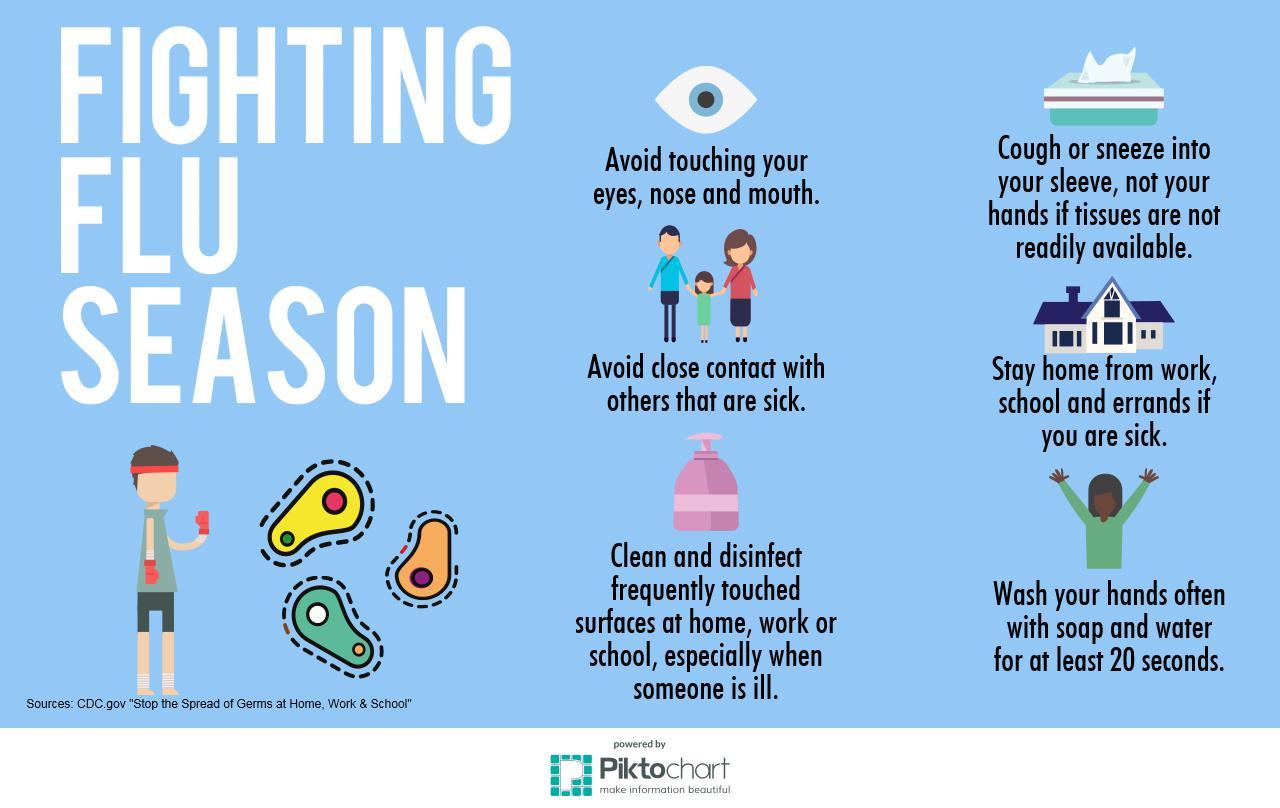Do Not Hesitate, Vaccinate
Flu shots found to be 60 percent effective in combating illness
Sitting at home, senior Autumn Perry recovers from being sick.
January 25, 2017
The influenza vaccination has been subjected to skepticism and controversy ever since it was first invented by Jonas Salk and Thomas Francis in 1938. Even so, it is important for everyone six months of age or older to receive the vaccination every flu season, as it offers important health benefits and can reduce flu illnesses and flu-related hospitalizations.
Influenza is a highly contagious respiratory infection caused by influenza viruses. There are two main types of influenza viruses, A and B, but many different strains of each type, according to HistoryofVaccines.org. The diseases caused by these viruses are often referred to as “the flu.” Flu viruses can be spread up to about 6 feet away. Most experts agree that flu viruses are spread mainly by droplets that form when people with the flu cough, sneeze or talk. These droplets can land in the mouths or noses of people who are nearby or possibly be inhaled into the lungs. Less often, a person might also get the flu by touching an object that has flu virus on it and then touching their own mouth or nose, according to the Centers for Disease Control and Prevention (CDC). Symptoms of the flu include: cough, runny nose, congestion, headaches, fatigue and more. Getting a flu shot could lessen the effects of these symptoms or even prevent them altogether.
According to the CDC, flu viruses are most common during the fall and winter, even though they are present year-round in the United States. Timing of flu seasons tend to fluctuate, but influenza activity often begins in October, peaks in December and lasts as late as May. Before each flu season, researchers predict the viruses that will be the most common and create a vaccination that will protect against them. When injected into the body, flu vaccines create antibodies that protect against infection. These antibodies form about two weeks after vaccination. Although a recent study published by the International Conference on Emerging Infectious Diseases (ICEID) shows that flu shots are only 60 percent effective in combating the flu in its entirety, researchers also found that those who do not receive the vaccination are at risk for a longer duration of the illness as well as amplified symptoms. Flu vaccines are a quick and effective way to reduce the symptoms of the seasonal flu and spreading them to others.
The flu vaccination is, however, far from being infallible. Sometimes the predicted strains are wrong, resulting in an ineffective vaccine. According to Dr. Aaron Milstone, an associate professor at Johns Hopkins University, the vaccine was a good match last year, but the year before it was not. There is no way to know exactly how much protection the vaccine will provide this season or even which viruses will be prevalent, but many experts still agree that people are much better off getting it than not.
For the 2016-2017 flu season, the CDC urges the use of the flu shot and the recombinant influenza vaccine. They do not advocate use of the nasal spray flu vaccine this season, as it produced little to no benefit last year. Flu shots are available now at most primary care clinics and some drug stores including CVS and Walgreens.









